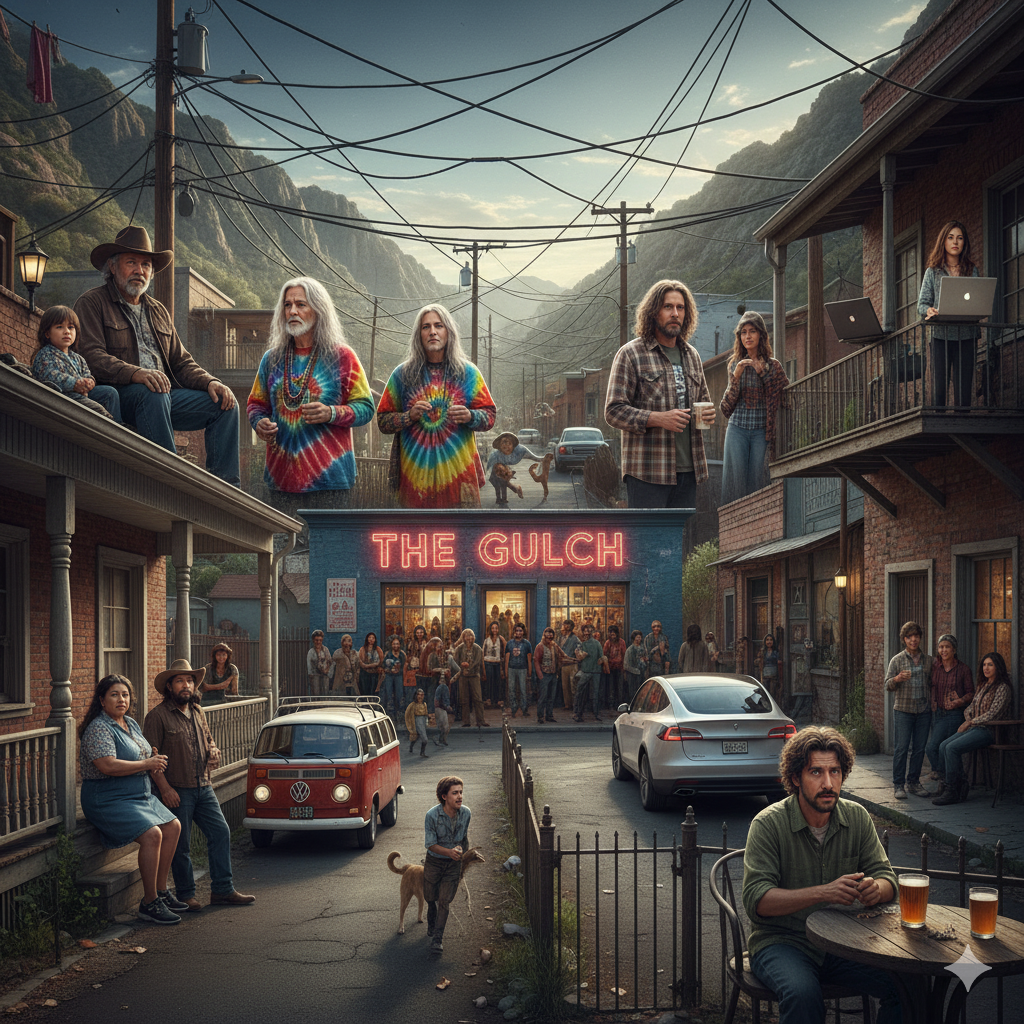Last updated on October 29, 2025
The fantasy of moving to a small, quirky town often includes visions of an instant, welcoming community—a place where you’ll find your tribe among fellow artists, free-thinkers, and eccentrics. In Bisbee, this utopian vision shatters quickly against the hard reality of a deeply fractured and insular social landscape. This isn’t a cohesive community; it’s a collection of disparate, often clashing, cliques, all trapped together in a remote canyon. The “weird” is a carefully curated performance for tourists, while the reality for residents is a social maze of gossip, clannishness, and quiet desperation.
First, you must understand the factions. There are the “old-timers,” families who have been in Bisbee for generations, many with roots in the mining industry. They possess a deep, often resentful, sense of ownership over the town and view the influx of newcomers with suspicion. Then there are the “hippies,” the artists and dropouts who arrived in the ’70s and ’80s, who bought up the cheap houses and established the town’s counter-culture reputation. They are now the establishment, often just as wary of the newest wave of arrivals as the old-timers were of them. Finally, there is the most recent group: the equity refugees from California, Portland, and Austin, who sold their overpriced homes and came to Bisbee looking for an “authentic” lifestyle, often pricing out the very artists and service workers who create the “vibe” they seek.
These groups do not harmoniously coexist. They tolerate each other, at best. Social circles are small, rigid, and difficult to penetrate. The initial friendliness you experience as a visitor evaporates once you plant a “for sale” sign in your yard. You are no longer a source of revenue; you are competition for scarce resources, be it parking spaces, a contractor’s attention, or a seat on a town committee. The gossip mill is the town’s primary industry. Every decision you make, from the color you paint your house to the person you’re seen having coffee with, will be scrutinized, analyzed, and broadcast through the town’s hyperactive rumor network.
Beneath the veneer of bohemian tolerance lies a surprising degree of social conservatism and a palpable tension. The town’s liberal politics are often just skin deep, a branding exercise for the tourist trade. The reality is a community rife with the same political and social divisions that plague the rest of the country, amplified by the claustrophobic nature of small-town life. Arguments on local social media pages are vicious, and long-held grudges can poison community interactions for years.
The social life, for many, revolves around the town’s disproportionate number of bars. The Gulch on a Saturday night is a loud, chaotic scene of locals and tourists drinking heavily. While this can be fun in small doses, it quickly reveals itself as the town’s primary coping mechanism for boredom, isolation, and economic despair. If you are not a heavy drinker, you will find your options for evening social engagement severely limited. The “party town” atmosphere masks a darker undercurrent of alcoholism and substance abuse, a sad and predictable symptom of a community with few opportunities and little hope for the future.
Finally, the “safe, small town” image is demonstrably false. According to crime statistics, Bisbee’s crime rate is significantly higher than the national average. For a town of its size, it has a startlingly high rate of violent crime. This is not the gentle, crime-free Mayberry you imagined. It is a town with real, serious problems—problems that are often ignored or downplayed to protect the all-important tourist economy.
The ultimate social problem, however, is the profound isolation. Your quirky, interesting neighbors will quickly become the only people you see. The nearest city, Tucson, is a 90-minute drive away. Accessing different cultural events, diverse restaurants, or simply a new set of faces requires a significant investment of time and travel. That small social pond begins to feel suffocating, and the lack of anonymity becomes a heavy burden. You can’t escape. You are stuck in the canyon, with the same people, the same conversations, and the same problems, day after day.
